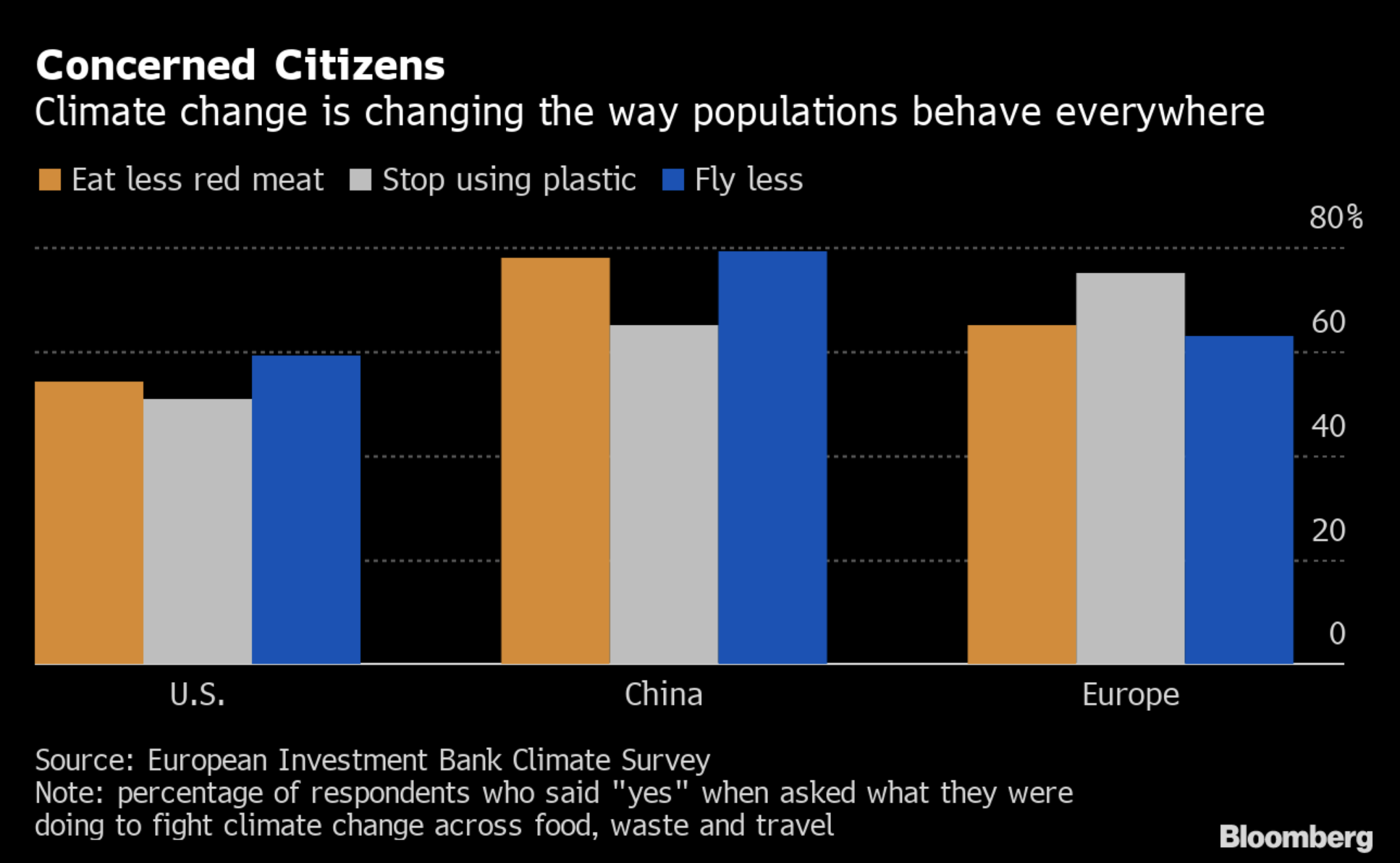From Australia’s devastating wildfires to T-shirt weather in Norway at the height of winter, the latest weather events are showing the global impact of climate change.
The majority of people in a new survey by the European Investment Bank covering the U.S. to Europe and China think that the warming of the planet is still reversible, but they are so concerned that they, at the very least, say they are prepared to make radical decisions to help slow rising temperatures. That covers everything from riding the train to the beach instead of flying, cutting down on the red meat and curbing the use of plastics—as the chart below shows.
The last five years on earth have been hotter than at any time since the industrial revolution kicked off almost two centuries ago, according to Europe’s Copernicus Climate Change Service. Another study published on Monday in the journal Advances in Atmospheric Sciences showed that temperatures in the world’s oceans rose to a record last year.
Other interesting results in the survey:
- European and Chinese citizens deem climate change their biggest challenge facing their country, while Americans worry more about access to health services. Concerns over global warming was as high as 73% in china, 47% in Europe and 47% in the U.S.
- More than a third of Chinese, Europeans and Americans deem the rise in temperatures the most worrying sign of climate change.
- European citizens are more pessimistic (33%) than Chinese (19%) or Americans (28%) about the reversibility of climate change.
- Six out of 10 European, Chinese and American citizens believe their individual behavior can help tackle climate change.
- Nearly half of Americans and Chinese believe they will have to move because of climate change, while that number falls to 33% in Europe.
- More than a third of Chinese and a quarter of Americans and Europeans have switched to a green energy provider.
- Chinese respondents’ views were close to southern European countries, where convictions have not yet been met with actions, but commitment to change habits is strong.
- In the U.S., 18% do not believe in climate change, while 9% of European respondents and 1% of the Chinese held the same view.
EIB and research firm BVA conducted online interviews with more than 30,000 people in the European Union countries, China and the U.S. from Sept. 27 to Oct. 21 last year.
–With assistance from Zoe Schneeweiss.






















 Insurance Groundhogs Warming Up to Market Changes
Insurance Groundhogs Warming Up to Market Changes  Five AI Trends Reshaping Insurance in 2026
Five AI Trends Reshaping Insurance in 2026  Nearly 26.2M Workers Are Expected to Miss Work on Super Bowl Monday
Nearly 26.2M Workers Are Expected to Miss Work on Super Bowl Monday  20,000 AI Users at Travelers Prep for Innovation 2.0; Claims Call Centers Cut
20,000 AI Users at Travelers Prep for Innovation 2.0; Claims Call Centers Cut 










